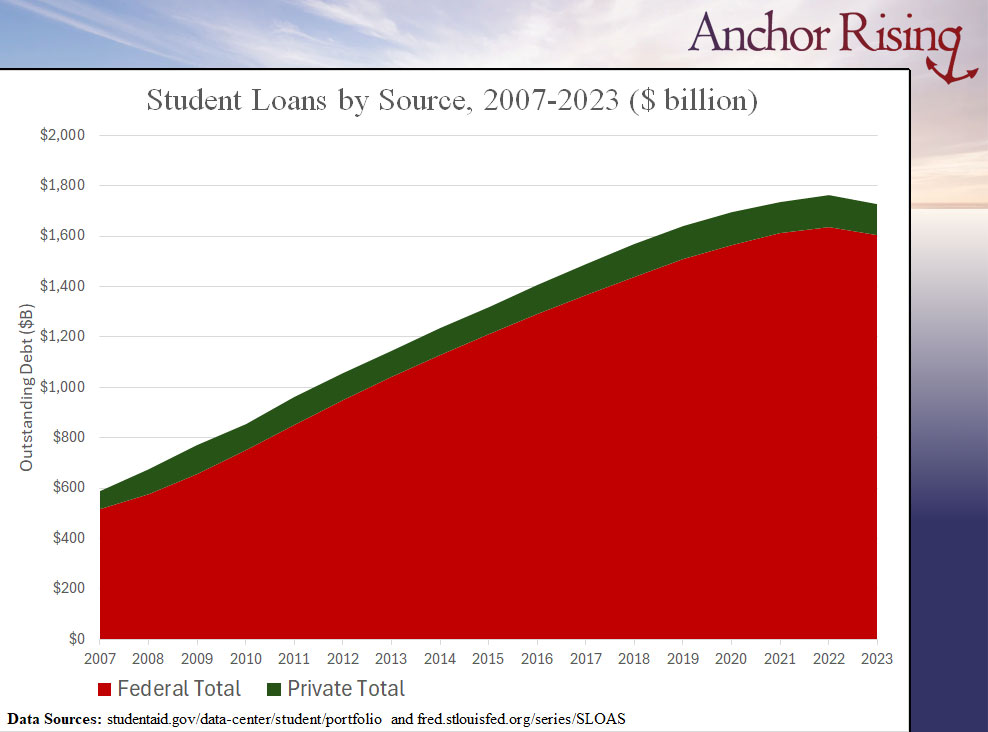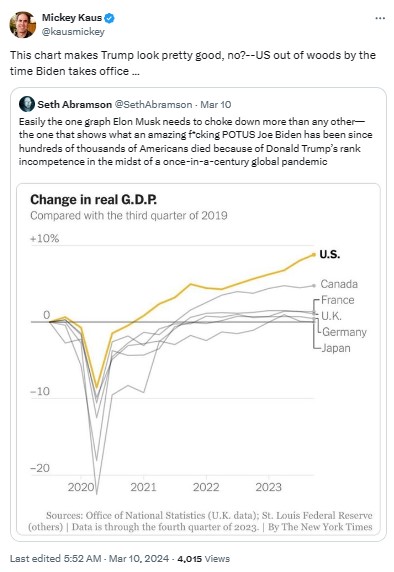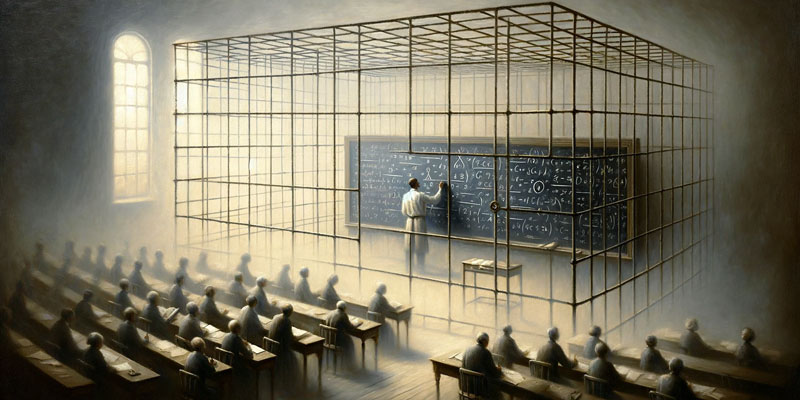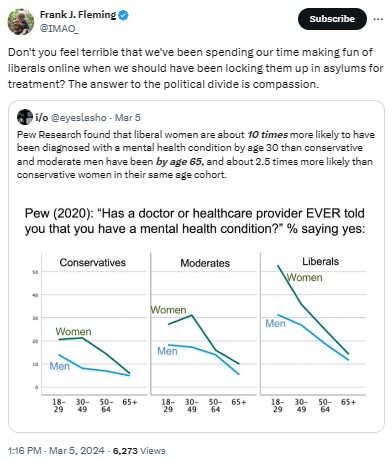On WNRI 1380 AM/95.1 FM, John DePetro and Justin Katz discuss:
- An activist holiday in the White House and Statehouse.
- A push toward government healthcare control.
- The Washington Bridge cancels a marathon…
- … and inspires warning messages from airlines.
- Driving troubles by notable people expose corruption.
- Block’s selective election notoriety.
- A 1984 switch in mail ballot reality.
- A move toward increasing homelessness.
- School and infrastructure budget woes in Pawtucket.
Featured image by Justin Katz using Dall-E 3.
[Open full post]I agree with Mickey Kaus, here:
Under President Trump, our dip was shallower than the comparison countries in the chart, and the economy was roaring back by the time Biden took office. If anything’s notable, it’s how hard Biden put the brakes on within months of being in office, with continued slowing in improvement thereafter. I’d even argue the effect was so profound that it continues to harm the other countries.
[Open full post]Brandon Busteed’s argument in Forbes well taken:
U.S. teachers are dead last among all occupational groups and professions in feeling their opinions count at work, that their supervisor creates an open and trusting environment and that they are treated with respect each day. Teachers are also the highest of all professions in experiencing burn-out and stress. And it’s no wonder why half of all teachers are currently looking for a new job and missing 2.3 million days of work each year. These are sickening data and indeed suggest that the school workplace is making teachers sick. …
We need to free our teachers to do what they do best – to teach and inspire. Well-intentioned yet failed education policies that have overemphasized standardized testing and driven national and state-level ‘standardized’ curriculum have led to teacher disempowerment. These efforts have left us with an excessive number of school days being devoted to test taking and preparation while also wresting control over classroom time and creativity in lesson planning from teachers. We have effectively rendered teachers increasingly powerless at the same time we expect them to do more than ever.
Teachers (including those in my family) will be quick to offer an “amen” to that, as they should, but they should pause and consider the points without the standard battle lines that have been drawn in their minds. Isn’t providing teachers a voice something that labor unions are supposed to have been doing for decades? Does it ever seem like the type of work environment that unionization creates might contribute to a lack of “open and trusting environment” with management?
I’ve watched the interaction of teachers unions with school administrators (and members of the community, for that matter), and I have to say that union organizers undeniably and deliberately foster a sense of grievance and conflict. They’ve also created the environment in which parents and community leaders rightfully demand standardized testing. Professionals who are free to innovate and “inspire” must also be subject to accountability when they fail.
Busteed glosses over the single-most-consequential choice in all of education: Do teachers want to be freed with autonomy, or do they want to be shielded from consequences? You can’t have the benefits of autonomy along with the protection of “solidarity.” Either they’re unique and inspiring individuals who can be trusted and judged by their own performance, or they’re replaceable members of a union who can uniformly be covered by a detailed labor agreement that dictates everything from stipends for extra work to the number of minutes allocated for planning.
A system that doesn’t demand this choice be made is one that ceases to function for the education of children and focuses on the employment of adults, and I agree with Busteed that a system in which the choice is uniformity will not work in the long run. That leaves only one conscionable choice.
Featured image by Justin Katz using Dall-E 3.
[Open full post]On WNRI 1380 AM/95.1 FM, John DePetro and Justin Katz discuss:
- All tiers of officials don costumes to walk the bridge (again)
- “Bloodbath” misinformation comes to local news
- Government by talking point
- Magaziner pledges to make jobs more scarce nationwide with mandates
- Cano pledges to do the same statewide
- ABC6 unionization spells the end
- Government as the employer of choice in Cranston and elsewhere
Featured image by Justin Katz using Dall-E 3 and Photoshop AI
[Open full post]Whatever one’s political leanings, the incentives of government must be understood as simply reality. Government agencies don’t have to create a product or service that people will voluntarily purchase. Rather, they must find activities for which they can justify forcing people who are not the direct beneficiaries to pay. This model is justified, in some circumstances, but its being justified does not change its nature.
The other day, I set out to find data on student loans because talk of the Biden administration’s passing graduates’ debt on to other people seemed to have been overstated. I thought most debt came from private loans, not government-backed loans, but I was wrong. Comparing the federal student loan portfolio with total securitized student loans suggests that private loans account for just 7% of the total.
Of course, the ratio is likely to vary significantly by income level. More research would be necessary to confirm this point and put some details to it, but lower-income families are probably more likely to have high federal debt, while upper-middle-income families have more private debt and wealthy families simply pay their college bills. Keep that differential in mind while considering the following chart.

Over this period, the amount of student debt has nearly tripled, up 193%. However, federal debt has grown 211%, while private debt has grown “only” 70%. During this time, the number of Americans ages 15 to 24 increased by only 1.4%, while the number enrolled in college has increased by just 5.5%. In short, we can infer that easy access to federal debt has encouraged some additional enrollment, but it has contributed to inflation of tuition by an order of magnitude more. And while it would certainly require a separate inquiry, the general sense one gets is that, if anything, the quality of education has gone down.
Now look at the other side of the ledger. That down-tick in debt over the past year is attributable to the Biden Administration’s transfer from the accounts of the students and graduates to the account of the American taxpayer. More importantly, the amount is hardly significant in the face of the increase, which is the observation that leads to the key point.
Commentators rightly complain that responsible borrowers and those who never went to college are being made to pay for other people’s degrees, and to note that many of those degrees are likely to be useless, reflecting something more like a four-year vacation from life than a communally beneficial training of future workers and leaders. In my view, however, the more-significant effect is on the borrowers themselves. They have been made serfs and products of the federal government.
The model of what I’ve called the “government plantation” is one in which politicians and other government officials cultivate recipients of government services (in this case, financial lending) for which they can charge other people. The cultivators take a cut of the money from the payers while also reaping the reward of votes from those who have been made dependent.
We see this process in operation with student debt. Government policy has transformed the debt load for higher education from reasonable to crushing, and one party, the Democrats, dangles the promise of relief in exchange for votes (even if it must be done without legal authority). But the relief it provides is only a fraction of the burden it has imposed, leaving its ability to promise more relief entirely intact.
With this arrangement, as with many others, the end result is not a benefit to the recipient or the payer, but a loss of freedom for all. Little wonder the powerful spend so much time cultivating, above all, a sense of animosity and division.
Featured image by Justin Katz using Dall-E 3 and Photoshop AI.
[Open full post]On WNRI 1380 AM/95.1 FM, John DePetro and Justin Katz discuss:
- Day of reckoning on the Washington Bridge… for whom?
- Homeless directors
- McKee’s raises
- Ken Block makes the local networks
- ABC6 hires a union agitator
- WPRI’s back-pay woes
Featured image by Justin Katz using Dall-E 3 and Photoshop AI
[Open full post]This is an interesting bit of data, and Frank Fleming’s response is humorous, but a question of causation and another bit of information are relevant:
The bit of information that’s missing is the percentage of each group who’s asked a healthcare provider to diagnose a mental health condition. No doubt, psychologists and psychiatrists could find something wrong with many a conservative and many a man.
The question of causation is more political. Progressivism is the ideology for mental illness. They reinforce each other, and the presence of the latter makes a person vulnerable to manipulation by the proponents of the former.
[Open full post]It’s hard to believe this is the conclusion of the CEO of the “business-backed” Rhode Island Public Expenditure Council (RIPEC):
The state should consider alternatives pursued by other states like road usage charges, electric vehicle charging fees, increased registration fees for hybrid/electric vehicles, or tolls (especially if the state is unsuccessful in its appeal of the ruling in the truck toll court case).
Mo’ money, mo’ money.
Rhode Island does not have a funding problem. It has a management and priority problem. Adding to the cost of living and funneling more millions through our corrupt government will not solve the problem.
It’d be interesting for somebody to do a study of the percentage of new money that actually goes toward increased time-on-task for infrastructure in the Ocean State, versus new hiring, increased pay, and graft. Unfortunately, RIPEC does not appear likely to be that somebody, despite being one of the vanishingly few groups with some resources and mission to do such things.
[Open full post]By its nature, advocacy journalism glosses over the details that many would consider crucial. Headlines from a pair of such articles by Katie Mulvaney in the Providence Journal illustrate the point:
Six months pregnant with nowhere to go – an unhoused woman’s plight on RI’s streets
After months of sleeping on the street, pregnant woman finally has a shelter bed
The first paragraph of the second article provides the journalist’s objective:
It took a week after a story highlighting her grim scenario, but the pregnant woman who spent months sleeping on the street in Pawtucket has landed in a shelter – with a lot of help along the way.
Understandably, journalists want to feel as if they’ve got the power to help people they want to help. The problem — especially when the same journalists are touchy about seeming to victim blame — is that the details that highlight the underlying problem become obscured. Thus, we end up with solutions that pour more money into problems while leaving the underlying incentives in place, which has the effect of subsidizing the problem, leading to more of it. The heroine of Mulvaney’s story is not the only pregnant woman in Rhode Island shelters.
It isn’t victim blaming to call out some of the notable details:
- The mother appears to come from a childhood with exposure to drugs.
- She is living on Social Security disability for some unreported malady.
- She was evicted last March for non-payment of rent.
- By the math, she became pregnant five months later.
- The father has a felony record, hasn’t had a stable home since he turned 18 five years ago, and implies he uses drugs.
- He is also living on Social Security disability.
The details suggest two important points. The first is that this is an extreme case. To the extent limited resources help others who could more easily help themselves (and invite people to bring their problems here), fewer are available for such mothers.
The second is that multiple layers of public policy are in play, here, including drug policy, criminal reform policy, policy governing payment for disabilities, broad policies affecting the health of the economy, and more. We can and should help such people, but if we want to stop the downward spiral that draws more Rhode Islanders into it, we have to begin rethinking our entire approach.
Featured image by Justin Katz using Dall-E 3.
[Open full post]These stories come much too quickly to keep up, digest, and consider, but Mel’s review of Letitia James’s campaign finance reports a few weeks ago is worth a look:
What might we find in RI, if we looked?
[Open full post]









